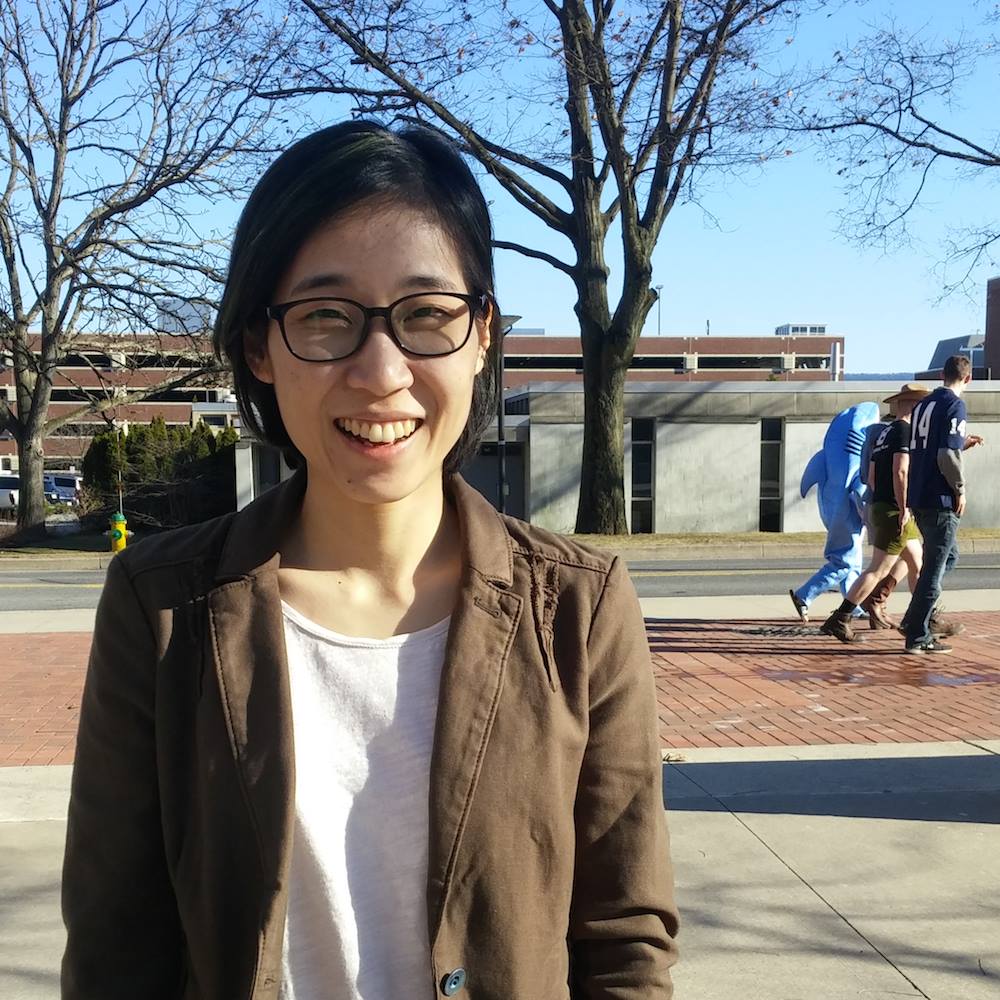Call for Ph.D. Students in Human-Computer Interaction (HCI)
Keywords: Health, Personal Informatics, Collaborative Tracking, Multimodal Interaction, Mobile Data Visualization.
Openings: 1-2 Ph.D. Students
About the positions
Prof. Eun Kyoung Choe is accepting Ph.D. students for Fall 2021. Please read the descriptions and necessary skillsets below. Applicants are encouraged to specify which projects they are interested in in their SOP; if not, they will be considered for both projects. If interested, apply to the Ph.D. program in the College of Information Studies (Priority deadline: 12/11) or in the Department of Computer Science (Deadline: 12/11).
Project 1: Multimodal Personal Data Tracking, Data Exploration, and Self-Reflection
We examine how multimodal interaction (e.g., combination of speech, touch, and other modalities) can help people effectively collect rich personal data, explore data, and promote self-reflection. We consider a multi-device environment where people interact with a smartphone, smartwatch, smart speaker, and other types of sensors and embedded devices. We are currently examining this topic in a variety of personal data contexts such as (1) food and food decision making and (2) older adults' and stroke patients' activity label capturing. I am specifically looking for students who are passionate about studying older adults' technology use (and nonuse) and designing and improving technologies to close the digital divide for older adults.
Related published papers from this project include the following:
Reaching Broader Audiences with Data Visualization.
IEEE Computer Graphics and Applications 40(2). [PDF]
TandemTrack: Shaping Consistent Exercise Experience by Complementing a Mobile App with a Smart Speaker.
Proc. ACM Human Factors in Computing Systems (CHI '20). [PDF]
Towards the Design of a Ring Sensor-based mHealth System to Achieve Optimal Motor Function in Stroke Survivors
Proc. ACM Interactive, Mobile, Wearable and Ubiquitous Technologies (IMWUT). [PDF]
Please let me know if you would like to know more about the most recent papers related to this topic (under review), then I can share them. Also, this line of work is related to the two recently funded grants (below) and these articles (article 1, article 2):
Project 2: Advancing Personal Informatics through Semi-Automated and Collaborative Tracking
Semi-automated tracking encompasses a broad spectrum of designs between the extremes of fully manual or fully automated tracking, ranging from the mostly manual tracking to mostly automated tracking. This research examines ways to leverage semi-automated tracking to help people easily engage with a rich set of personal data, such as weight, activities, sleep pattern, and medication use. In the past 3+ years, we have been designing and developing a flexible self-tracking platform called OmniTrack. Building off of the notion of semi-automated tracking, this year, I am looking for a Ph.D. student who wants to explore the collaboration around data tracking and sharing as a way to manage individuals' and groups' health and well-being (e.g., family context, patient-clinician collaboration), accounting for people's diverse data, visualization, and health literacy (--from kids to older adults).
Related published papers from this project include the following:
Co-Designing Food Trackers with Dietitians: Identifying Design Opportunities for Food Tracker Customization.
Proc. ACM Human Factors in Computing Systems (CHI '19).
[Acceptance rate 23.8%] [PDF]
OmniTrack: A Flexible Self-Tracking Approach Leveraging Semi-Automated Tracking.
Proc. ACM Interactive, Mobile, Wearable and Ubiquitous Technologies (IMWUT). [PDF]
Semi-Automated Tracking: A Balanced Approach for Self-Monitoring Applications.
IEEE Pervasive Computing. [IEEE Link] [PDF]
Requirements and skills:
The Ph.D. students will closely work with Prof. Choe and other team members, carrying out the human-centered design process, including interviews with patients, online and offline surveys, observations of clinical contexts, participatory design with clinicians and patients, design and prototyping, technology implementation, in-lab and deployment studies, and paper writing. They are expected to have excellent written communication, a keen eye for good design and details, and enjoy working with people. I prefer candidates with the following technical and design skills:
Project 1: Mobile application (Android or iOS) programming
Project 2: Proficiency in practicing design methods; backgrounds in data visualization
Both projects have many opportunities to conduct formative studies (using mixed-methods approaches) and to design prototypes and systems. I welcome students with diverse backgrounds who have strong interests in the subject matter.
Applying:
Apply to the Ph.D. program in the College of Information Studies (Priority deadline: 12/11) or in the Department of Computer Science (Deadline: 12/11).

